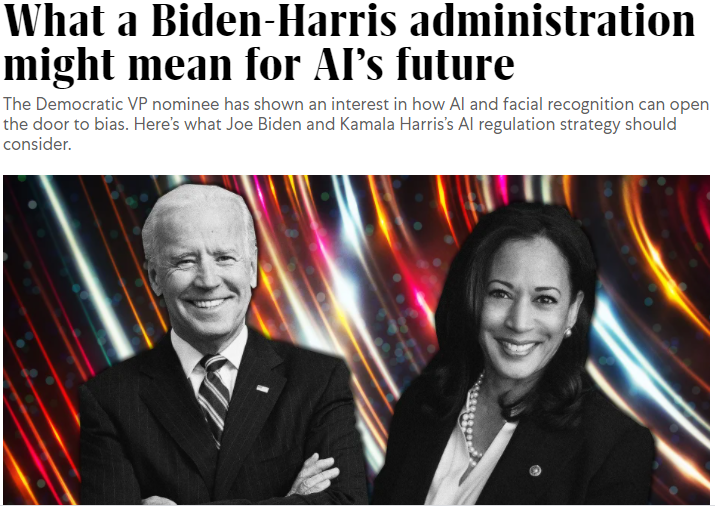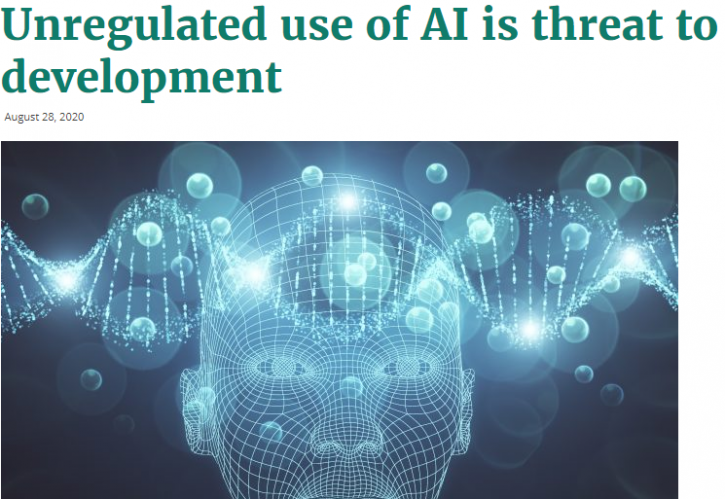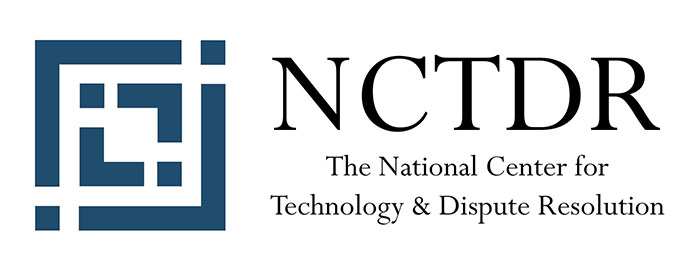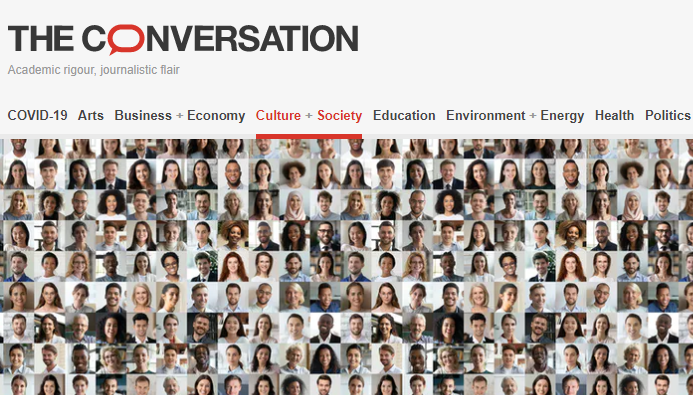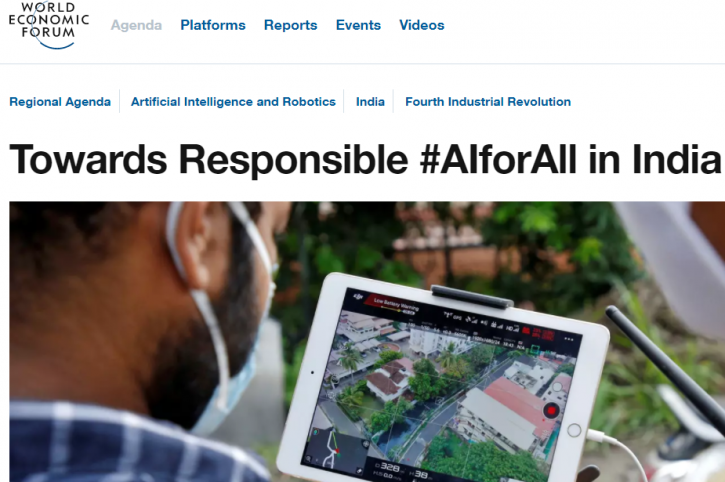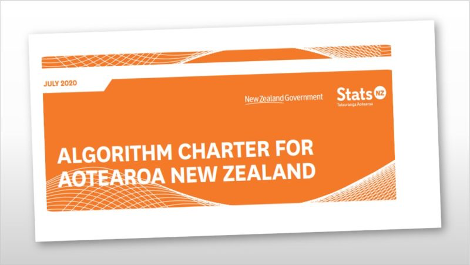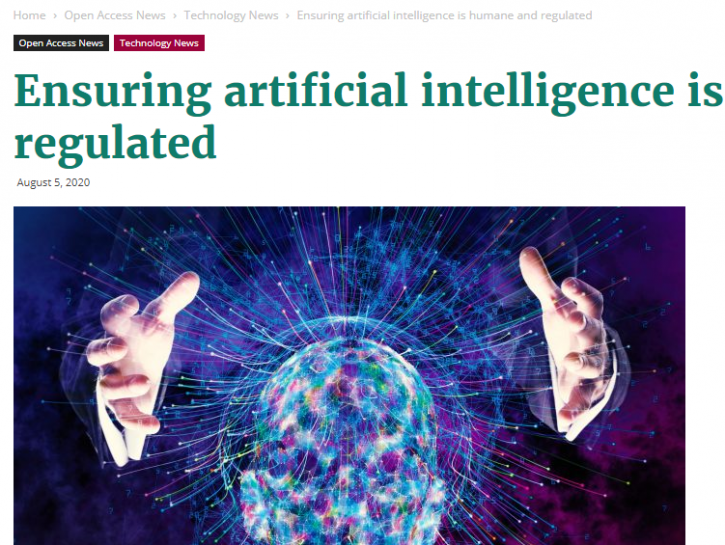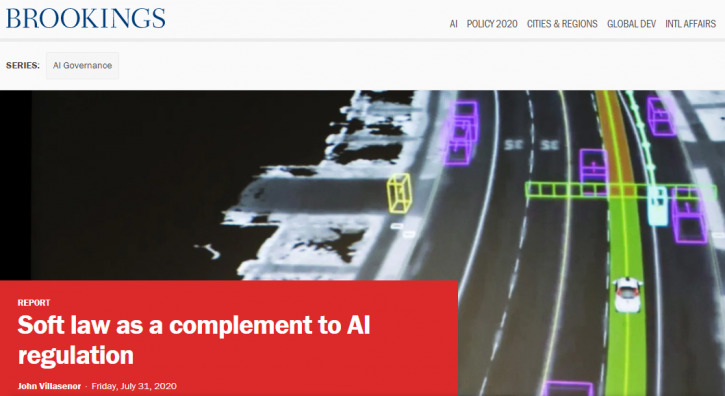News
This content is not available in the selected language.
In the media
What a Biden-Harris administration might mean for AI’s future
Fast Company explores the interesting link between the impact of a Joe Biden and Kamila Harris win at the oncoming presidential election on the future of AI, and especially its regulation : If the Biden-Harris ticket wins in November, it will mark the first time that a sitting vice president is a digital native. Not […] Read more
In the media
Unregulated use of AI is threat to sustainable development
A recent article in Open Access Development reports that a new study underlines that unregulated AI is a threat to the Sustainable Development Goals (SDGs) – a set of guidelines created by the United Nations (UN) for the sustainable development of all countries. Dr Jon Truby of Qatar University points out that this threat is especially […] Read more
News of JusticIA's members
Karim Benyekhlef becomes Fellow at the National Center for Technology & Dispute Resolution
1 September 2020 Karim Benyekhlef
We are pleased to announce that Professor Karim Benyekhlef, director of the Cyberjustice Laboratory and codirector of JusticIA, is joining the members of the prestigious National Center for Technology & Dispute Resolution (NCTDR). Founded in 1998 at the University of Massachussets, the center is directed today by the professor Ethan Katsh and aims to : […] Read more
In the media
AI technologies — like police facial recognition — discriminate against people of colour
Jane Bailey, Jacquelyn Burkell (reasearchers at the ACT Project) and Valerie Steeves highlighted in this article published on the website The Conversation the racist bias of AI technologies like facial recognition technology which discriminate against people of colour. Facial recognition technology that is trained on and tuned to Caucasian faces systematically misidentifies and mislabels racialized […] Read more
In the media
Towards Responsible #AIforAll in India
A recent article on the World Economic Forum website gives us insights to how India plans to regulate AI in a responsible manner. Building further on the National Strategy on AI (NSAI) released in 2018, NITI Aayog is now working on outlining an approach towards realising the economic benefits of AI in a manner that […] Read more
In the media
Millions of Americans Have Lost Jobs in the Pandemic—And Robots and AI Are Replacing Them Faster Than Ever
A recent Time article offers an incursion into the problem of the changing job market when the pandemic seems to be accelerating the use of artificial intelligence and robotization. This pandemic has created a very strong incentive to automate the work of human beings. Machines don’t fall ill, they don’t need to isolate to protect […] Read more
Blog
L’IA et les GAFA au temps de la COVID : une réglementation à la croisée des chemins ou qu’en est-il des droits humains?
13 August 2020 Valerie Parent
This content is not available in the selected language. Par Valerie Parent, doctorante à la Faculté de droit de l’Université de Montréal, coordonnatrice et chercheuse étudiante pour le regroupement JusticIA ainsi que collaboratrice aux projets OpenUM de la Chaire L.R. Wilson (droit des technologies de l’information et du commerce électronique) et Open Science UMontreal. Photos […] Read more
In the media
La Nouvelle-Zélande se dote d’une Charte des algorithmes
This content is not available in the selected language. Simon du Perron, auxiliaire de recherche au Laboratoire de cyberjustice, a signé le 10 août dernier un billet de blogue sur le site du Laboratoire de cyberjustice. En raison de son intérêt au regard des travaux de JusticIA, nous le reproduisons ici : L’utilisation d’algorithmes d’intelligence artificielle par l’administration publique […] Read more
In the media
Ensuring artificial intelligence is humane and regulated
Alejandro Saucedo, Member of the European Commission’s High Level Expert Group Reserve List on AI and Engineering Director at Seldon, argues that to ensure artificial intelligence is humane, it must be regulated. He insists that complex ethical decisions that impact people’s lives cannot just rest on the shoulders of a single developer or data scientist […] Read more
In the media
Soft law as a complement to AI regulation
While soft law has been applied in many fields, John Villasenor argues in a piece for the Brookings Institute, there are multiple reasons why it is particularly well suited for AI. First, the rapid pace of development of AI exceeds by far the capability of any traditional regulatory system to keep up. A second reason […] Read more
